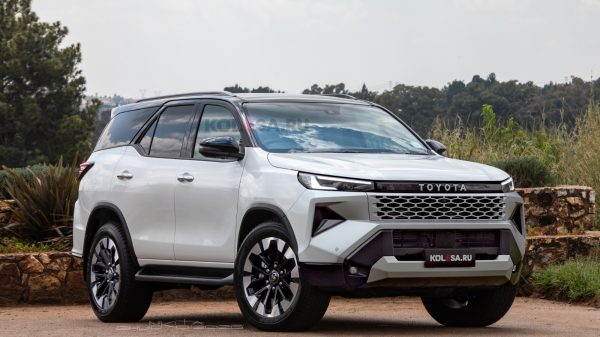Elon Musk’s Tesla lobbied the UK government to raise taxes on petrol and diesel cars in order to fund bigger subsidies for electric vehicles, alongside a ban on hybrids.
The US electric car pioneer called for a rise in fuel duty and a charge on petrol and diesel car purchases to pay for grants and tax breaks such as a VAT exemption for battery-powered cars, according to submissions to the government seen by the Guardian.
The proposals would theoretically add thousands of pounds to the cost of a new petrol or diesel car, while making electric cars cheaper.
“Supporting zero-emissions vehicle uptake via mechanisms to make new fossil-fuelled cars pay for the damage they cause is entirely reasonable and logical,” Tesla wrote in a submission in July last year. “The result can be a revenue-neutral system for the government.”
Higher taxes on fossil fuels are seen by many environmental campaigners as a key part of tackling the climate crisis. However, governments fearful of a political backlash such as France’s gilets jaunes (yellow vests) protests have proven reluctant to raise short-term costs for drivers. In the UK the Conservative government has frozen fuel duty for 11 years, a subsidy for petrol and diesel that has been worth more than £50bn.
Musk, Tesla’s chief executive, has pioneered mass production of electric vehicles to tackle carbon emissions from transport, although the company’s purchase of $1.5bn (£1.1bn) in bitcoin has been criticised by some environmental campaigners because of the cryptocurrency’s high energy use.
Tesla’s views on fossil fuel bans set it at odds with many of its rivals in the car industry, which have lobbied intensely against government proposals to ban all petrol and diesel cars, including hybrids, in 2030. In November the government said hybrids would be allowed until 2035, a relief to many traditional carmakers which still make large profits from fossil fuel engines.
Tesla was the only carmaker in the submissions reviewed by the Guardian which argued in favour of a total ban on all petrol and diesel cars, including a ban by 2032 on hybrids, which combine batteries with an internal combustion engine. That would be in line with the UK’s Committee on Climate Change, which said hybrids should be banned in 2032.
Research by InfluenceMap, a lobbying monitor, found that carmakers “opposing higher climate ambition” have met the UK government more often than those that generally supported a faster transition. Between 2017 and 2020 the government met those opposed 209 times, compared with 153 for more supportive companies.
Sign up to the daily Business Today email or follow Guardian Business on Twitter at @BusinessDesk
Tesla argued that £3,000 grants for new electric cars could be “revenue-neutral” at about £49 per petrol or diesel car sold in 2019. However, that would have to rise to about £750 per petrol or diesel car once electric car market share reached 20%. Grants would directly benefit Tesla sales.
Tesla also argued that car manufacturers should be forced to sell a certain proportion of zero-emission vehicles – a “zero-emissions mandate” similar to the company’s home state of California. Other proposals included paying people to switch away from older polluting vehicles, tax breaks for corporate car users, and a “charging promise” that the government would install chargers on any street in the UK when requested.
Tesla did not respond to a request for comment.



















































Свежие комментарии